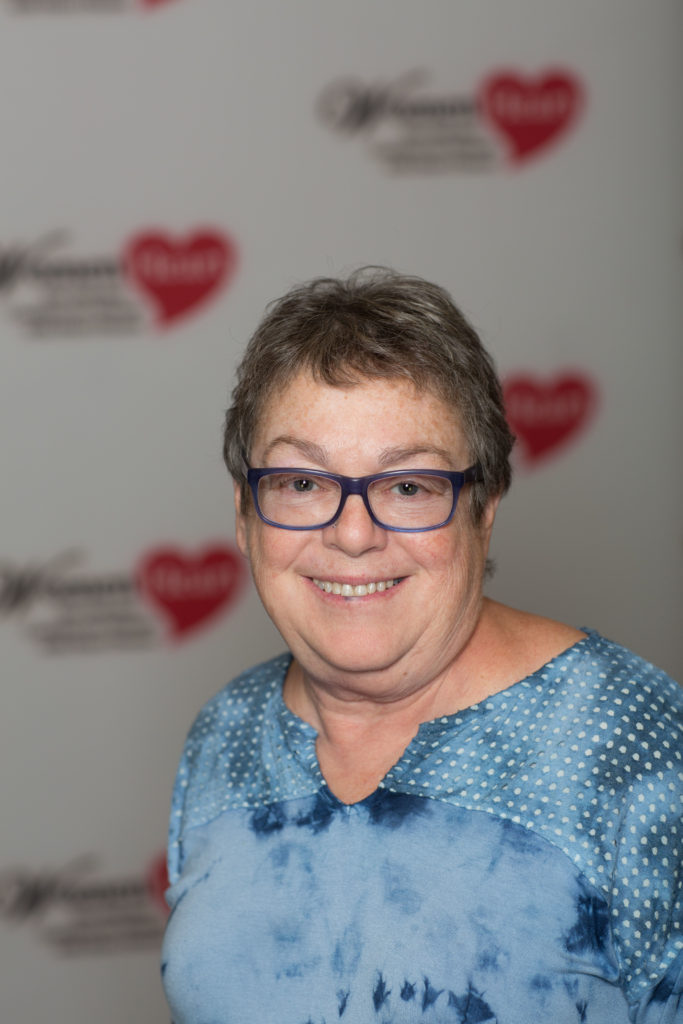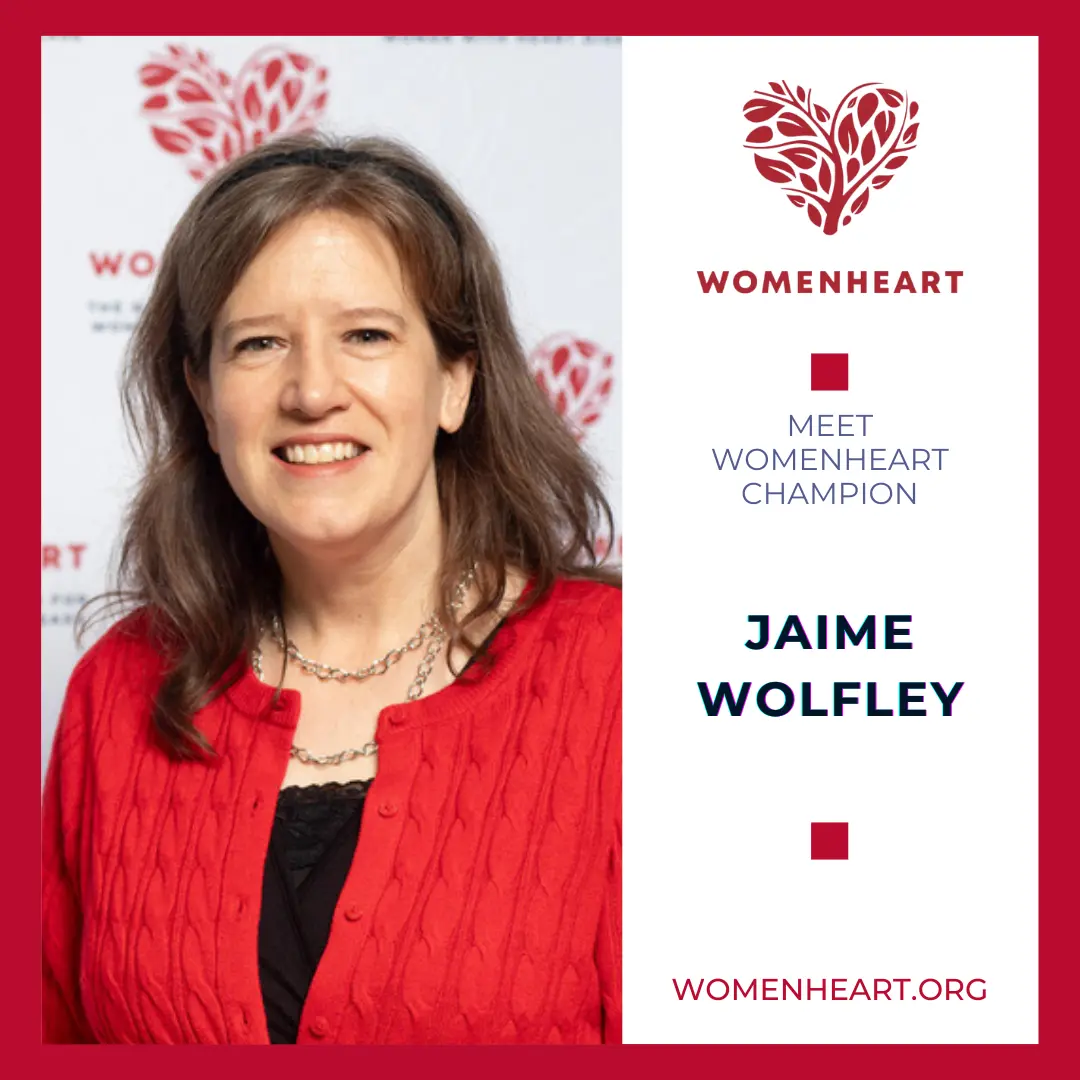 You know all those headlines that read, “How could a healthy, 40-something have a heart attack?” What they don’t seem to understand, is that heart disease does not discriminate. People of all ages, genders, and socioeconomic backgrounds get heart disease. Nearly 1 in 4 women die of heart disease every year.
You know all those headlines that read, “How could a healthy, 40-something have a heart attack?” What they don’t seem to understand, is that heart disease does not discriminate. People of all ages, genders, and socioeconomic backgrounds get heart disease. Nearly 1 in 4 women die of heart disease every year.
As Chandra Wilson’s character Dr. Miranda Bailey said on a recent episode of Grey’s Anatomy, “Sixty-three percent of women who die suddenly from coronary heart disease had no previous symptoms.”
On the day of Marcia Kritzler-Egeland’s heart attack back in 2014, she was teaching part-time, exercising three to five times a week as a lap swimmer, and leading water fitness classes at the local YMCA in Sturgeon Bay, Wisconsin, where she lives. One October morning, she was attending a water fitness class taught by a colleague when she experienced a brief but intense sharp pain in her left bicep. As soon as she stopped exercising, the pain went away.
“I figured because any time I stopped, the pain subsided, that it was just exerciserelated,” Kritzler-Egeland said. “So I went ahead and finished the class. I even sat in the hot tub afterward. I was kind of in denial, because I figured for it to be something really bad, there would be intense lasting pain.”
By some miracle, she was scheduled to visit her primary care doctor later that afternoon.
“Just as an aside, I casually mentioned at the end of the appointment, ‘Oh, by the way, I had some pain in my upper arm this morning,’” Kritzler-Egeland recalled.
Her doctor assured her it was probably nothing major, she doubted it was heart-related, maybe just a pulled muscle, but because of her family history of heart disease, she ran a few tests just to be safe. This precautionary wisdom ultimately saved KritzlerEgeland’s life.
Kritzler-Egeland has a family history of heart disease: Her father died of a stroke during surgery at 57 and her paternal grandfather had poor circulation which led to a leg amputation and eventually caused his death in his late 60s.
“It was always in the back of my mind that this could happen to me, but I’d gone to see a cardiologist in my early 40s, but they said, ‘You’re protected because you’re a woman,’” Kritzler-Egeland said. “And I just accepted that.”
She had had cardiac catheterizations and the doctors found “a little bit of calcification,” Kritzler-Egeland said. “I didn’t know to ask any further questions. I didn’t even know what to ask, so I just went on my way and adjusted my diet and things seemed OK.”
But years later, on that fateful Halloween in 2014, a persistent doctor who listened to her symptoms and family history performed an EKG despite already having performed one in June of that year. But when the EKG came back clean, it was Kritzler-Egeland’s turn to persist.
“I said, ‘You know, I just have a bad feeling about this,’” Kritzler-Egeland said. So her doctor decided to check her cardiac enzymes just for peace of mind.
“When she came back in with the results, she took my hands in hers and told me I had had a heart attack that morning,” Kritzler-Egeland said. “She had a wheelchair waiting for me and wheeled me to the ER.”
In a small town of less than 10,000 people, there was no cardiologist at her local hospital. Doctors told her she’d have to choose one from another hospital. She called her husband who helped her choose a cardiologist in Green Bay, about 45 miles away. When she arrived, they immediately performed surgery and placed seven stents in her chest to open up her three blocked arteries.
Today, she’s grateful that her doctor persisted until she got an accurate and lifesaving, timely diagnosis.
“It was Halloween, and I was going to go out to buy my costume for that evening. I was going to be Marge, from Fargo,” she said. “I probably would have died that night if I had not gone to see my doctor.”
Since then, it’s been far from smooth sailing: She’s experienced angina, more catheterizations, and a triple bypass surgery at Bellin Hospital. She’s successfully completed cardiac rehab, hearty condition (the next phase of rehab) and clinical trial research as a study participant. She’s sought help for her depression and emotional issues that followed as a result and learned about WomenHeart from Bellin, who had just joined the National Hospital Alliance and encouraged Kritzler-Egeland to join the group of women heart disease survivors and community leaders.
A 2016 WomenHeart Champion, Kritzler-Egeland says she joined WomenHeart because she didn’t want another woman to feel isolated and alone. After joining the Heart Sisters program, she was matched with another woman going through something similar.
“WomenHeart was wonderful. I got so much support and was matched up with another heart sister,” Kritzler-Egeland recalls. “I had all kinds of questions she could answer, which was so helpful and supportive during that time.”
She started a support network group that meets monthly in the Sturgeon Bay area with women who are actively involved in trying to improve their lives through heart healthy decisions. They explore making recipes more heart healthy, celebrate life at heart healthy barbeques where the mains are chicken and fish, and talk about the hard issues.
“WomenHeart is great because it fulfills my need to teach,” Kritzler-Egeland said.
Today, she never stops teaching and never stops living.
“My doctor, Dr. James Rider, an amazing cardiologist at Bellin, said to me something that stuck with me. He said, ‘Don’t become a cardiac cripple.’ Meaning, don’t use your heart as an excuse not to do something. Set goals for yourself,” Kritzler-Egeland recalled. “So eight months after my triple bypass, I went to visit my son in Thailand for six weeks.”
Her next goal is hiking the El Camino trail from France to Spain.




